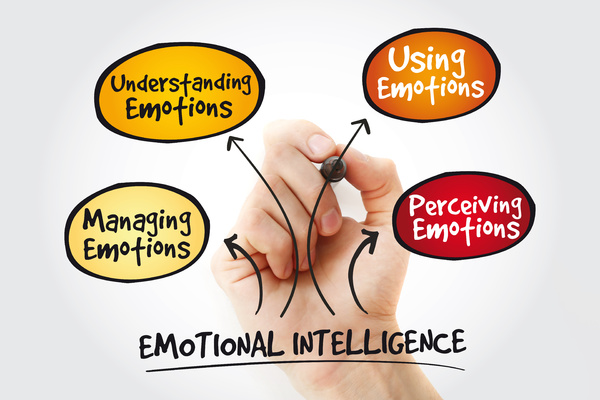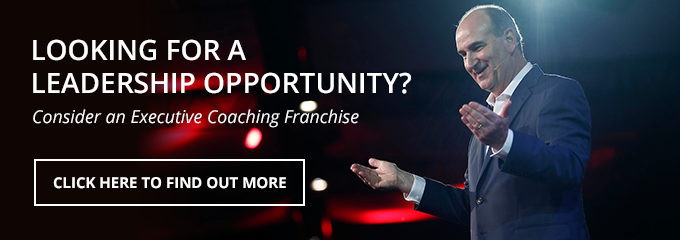THE WORLD’S #1 EXECUTIVE COACHING AND BUSINESS COACHING BLOG SINCE 2017.
What is an Emotionally Intelligent Leader and How Can Coaching Help You Become One?
Published On: December 13, 2021 | Last updated on: March 12, 2025 | Author: John Mattone | Category: Blog, Intelligent Leadership
Emotionally intelligent leaders are masters of their emotions and can read the emotions of others. In addition to optimally managing their emotions, they communicate convincingly and pursue effectively. Emotionally intelligent leaders improve employee retention and engagement. Leadership coaching can help develop this essential outer-core leadership competency.
Emotional intelligence is an essential leadership skill that enables us to cooperate with others. In my leadership coaching books, I have always treated emotional intelligence as one of the cornerstones of intelligent leadership.
On my Wheel of Intelligent Leadership, emotional leadership rooted in emotional intelligence is one of the nine strategic and tactical leadership competencies, together with decision making, critical thinking, and communication skills.
Emotional intelligence allows you to understand, manage, and use emotions.
What is an Emotionally Intelligent Leader?
Emotionally intelligent leaders understand their emotions and the impact emotions can have on their decisions. They sense and understand the emotions of others and the way these emotions shape the behaviors of their employees and peers.
Understanding and mastering emotions mean that emotionally intelligent leaders can:
- Use their emotions strategically to help them achieve desired outcomes.
- Have a calculated impact on others by influencing emotions.
- Be emotionally and cognitively empathic, thus building trust and rapport.
- Spot what is unsaid but inferred.
- Build strong teams by tapping into the emotions of team members.
- Possess a wide range of emotional communication skills
- Actively develop their emotional intelligence since being aware of this competence allows them to be receptive to improving it.
Leadership Coaching Can Help Develop Emotional Intelligence
In my leadership coaching books and blog posts, I have deconstructed emotional intelligence into the following components:
- Self-awareness
- Self-management
- Empathy
- Social skills
- Motivation
Knowing the variables that make up emotional intelligence allows executive coaching professionals to individually target them and help leaders develop their emotional intelligence.
Emotionally Intelligent Leaders are Self-aware
Self-awareness helps leaders recognize their emotions and the impact emotions have on their decisions. A self-aware people understand what drives them and how they respond to various moods. Being self-aware lets people hack into the otherwise uncontrollable effects of their emotions.
Self-management is an Ability Stemming from Self-awareness
Through self-management, leaders can keep their emotions in check while adhering to high standards of integrity and honesty. Self-management is the key to handling change effectively, coming up with fresh ideas, and taking responsibility for the results.
Empathy is the Superpower of Intelligent Leaders
To sense the developmental needs of a report or peer, a leader has to be empathic. By placing themselves in the shoes of others, empathic leaders see perspectives, perceive concerns and feelings, and understand needs.
Empathy allows leaders to consider situations from their employees’ perspectives.
Motivation Guides the Attainment of Goals
The primary driving force behind achievement, motivation, is an emotional state that facilitates productive behavior.
The components of this emotional state are:
- Optimism
- Commitment
- Initiative
- Achievement drive
Social Skills Are the Tip of the Emotional Intelligence Iceberg
The emotional intelligence element most readily observable for people is the social skill element. Using their social skills, emotionally intelligent leaders can communicate effectively, listen openly, and persuade others to do what the leader wants them to do.
The role of leaders is to inspire. And to do that, they need a reliable communication interface that lets them get their message through convincingly.
Sharpen Your Emotional Intelligence Through Coaching
Your leadership coach can help you work on the components of emotional intelligence, sharpening this must-have outer-core leadership competency one step at a time.
To become an emotionally intelligent leader, learn to value authentic interactions. And master the art of reasoning with emotions.
Emotional Intelligence is the Difference-maker
Emotional intelligence is a boon for leadership in many ways. The presence of an emotionally intelligent leader at the helm of an organization improves employee empowerment and engagement. It reduces employee turnover and makes it easier for the company to attract talent.
Emotional intelligence helps leaders advance their careers and their organizations.




